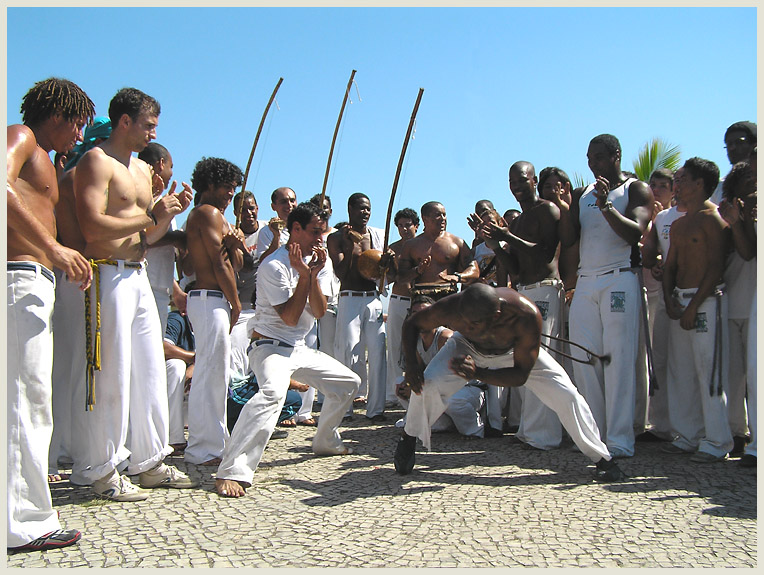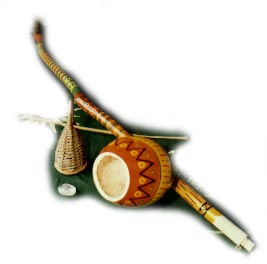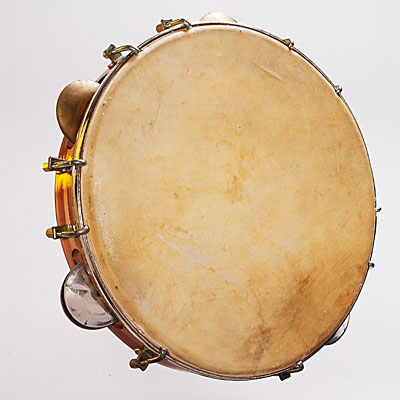Basic Terms of Capoeira
capoeirista- one who practices capoeira; a capoeira player
L to R: a capoeirista pair in Brazil, a young capoeirista
roda- the circle in which capoeira is performed; the space, usually made up of capoeiristas and bystanders, for playing capoeira
a typical roda in Brazil
mestre- a capoeira master; a senior capoeira teacher
ginga- the fundamental movement of capoeira which consists of placing both feet shoulder-width apart and then pivoting one foot back and forth.
Capoeira Regional- the innovative, modern style of capoeira practiced by Mestre Bimba (see Dance Style)
Capoeira Angola- the traditional style of capoeira practiced by Mestre Pastinha (see Dance Style)
Senzala- the capoeirista group that taught a Regional/Senzala style built on movements by Mestre Bimba (see Dance Style)
berimbau- a bow-like percussive instrument that gives the tempo of the music as well as the capoeira game
atabaque- the drum, similar to the conga drum, used in capoeira rodas
pandeiro- the Brazilian tambourine
chula- used to denote a chant
ladainha- the solo part of the song sung at the beginning of a roda or a game, usually typical of capoeira Angola
quadras- four verse songs sung by a soloist, to which the chorus responds, usually typical of capoeira Regional
corridos- one or two verse songs sung by a soloist, to which the chorus responds, usually typical of both capoeira Angola and Regional
Home | History | Dance Styles | Music | Capoeira Today | Bibliography | Perf62




